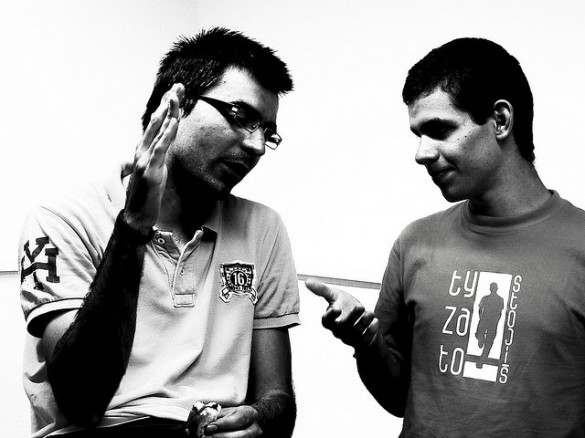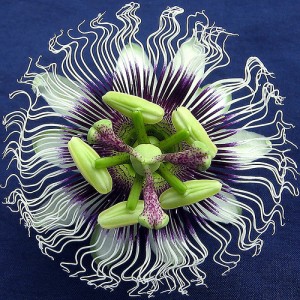
Emotions are often put aside when we are looking for ways to increase lucidity in dreams. This is definitely a missed opportunity, because by design dreaming is built upon emotional logic.
Navigating the lucid dream successfully, whatever your intention, demands the skill of dancing with the powerful emotional traces that construct and inform the dreamscape. This is a form of metacognition that involves being aware of your emotional state in the dream and making choices in light of this powerful force.
How emotions affect lucid dreams
Thanks to activation of the amygdala gland during REM sleep, our fight and flight responses are in overdrive during the dreamstate. Negative emotions far outweigh the positive: dreaming is not exactly the CandyLand depicted in popular media.
The most common emotions include fear, anxiety, anger, and confusion.
Dreamworker Jeremy Taylor has written eloquently about how facing fears and giving up unhealthy psychological projections in waking life can stir up dream lucidity. Emotional know-how can also help with dream navigation: so you can stay lucid in the dream for longer than a few seconds when it gets weird. (And it always does).

As Robert Waggoner suggests in his excellent book, to maintain the lucid dreaming state, we must modulate our emotions. If we don’t learn this, we have a host of issues, from waking up too soon from excitement, to becoming enmeshed in the dream drama again.
Lucid nightmares, of course, are intense struggles against strong feelings that threaten to blow us out of the dream into a panicked awakening.
Remembering how to feel
Unfortunately, we are taught in our culture that emotions cannot be controlled and they are to be feared. Men especially are acculturated to always be strong and never cry. Meanwhile, women are taught that shopping, entertainment and distraction is the best way to calm down.
Essentially, we live in an emotionally undeveloped culture that rewards (and profits from) us not knowing how we are feeling. As a result, when we embark on a quest for more awareness and choice in our dreams, we can be blindsided by emotional surges that we never expected and don’t know how to handle.
Growing gratitude
With this in mind, working with your emotions takes some training.
Start with gratitude. It’s easy and… so refreshing.
 Gratitude evaporates one of the greatest lucidity killers: negative expectation. Given the major role that expectation plays in lucid dreaming outcomes, gratitude as a practice protects the dreamer by grounding the lucid mind in a spirit of trust and confidence.
Gratitude evaporates one of the greatest lucidity killers: negative expectation. Given the major role that expectation plays in lucid dreaming outcomes, gratitude as a practice protects the dreamer by grounding the lucid mind in a spirit of trust and confidence.
Gratitude in waking life spills into the dream when we need it the most: when we’re scared, facing dark truths and being challenged by terrifying dream figures.
(Don’t get me wrong: sometimes we need to face shadows. In fact, that’s another emotional skill set altogether.)
Interestingly, the effects of gratitude extend into sleep physiology. A 2009 study suggests that gratitude is correlated with good sleep quality above the effect of all the other personality traits.
It just feels good to pay respect. The world deserves a little more love. And so do you.
Rooting in forgiveness
Gratitude must be rooted in forgiveness. Especially self-forgiveness.
In Buddhism, this is known as maitri, or complete self acceptance. Pema Chödrön writes, “Only when we relate with ourselves without moralizing, without harshness, without deception, can we let go of harmful patterns.” (2002 p. 25).
Self-acceptance in the lucid dream is a powerful place to lean against; allowing flexibility and courage when the dreamworld shifts and moves with the visionary intensity of REM.
Recently, I tried a forgiveness affirmation while looking at myself in a mirror, in a lucid dream:
I watch my reflection morph and shimmer as I repeat the words. My visage changes from uncertainty to acceptance. Now I have a beard, as well, and look older than I am in my waking life. My heart opens as I forgive myself. As I say the words, the mirror becomes like a sheet of mercury. I tap it with my fingers and concentric rings dance across it. I slip inside it, dissolving into a dark and spacious space. Now I have no dream body, and I breathe fully, protected and safe in the dark void. (10/10/11)
What would happen if this affirmation was the way we started every day?
Or the standard greeting for meetings of the United Nations?
We would live in a more lucid world.
This essay is adapted from my mastermind program the Lucid Immersion Blueprint.
First Image: Forgiveness by Taston CC 2008
Namaste, Ryan,
Your posts are such a nice way to start the day. I think you are absolutely right about the powers of love and gratitude. Ever since I can remember, I’ve greeted the day with the thought: “Thank you, Lords, for everything, and give me health and love.” If we’ve got those, we’ve got it all.
Self-forgiveness is such a deep, dark and tricky realm to navigate, especially when you believe (as I do) that you’ve been many other selves, many of which weren’t necessarily very nice and which your current self has to help in the forgiveness process in order to fully forgive itself… in other words, Karmic dregs. And as moths and other insects are attracted to light, my personal experience seems to indicate the more lucid you become, both awake and asleep (there’s no separating the two states, really) the more “memories” of other less enlightened selves begin crowding your dream world. Burning them in the fire of love and compassion / forgiveness, is definitely the way to go.
I’m very much looking forward to your forthcoming project!
thanks Marie. As Jung said, the brighter the light, the darker the shadow!
It seems to me there’s a direct relationship between practicing mindful presence in the face of emotion in waking life, and dream lucidity. Opening to emotions in waking life and facing them with compassion–befriending our demons, shadow work–strengthens the capacity for simply being present with emotion while lucid, instead of letting emotion sweep you out of lucidity. And this type of lucid dream work seems to augment waking-life mindfulness and shadow work.
But I’m always leery of anything that smacks of trying to control or modulate or manipulate emotional content. That’s ego defense, no matter how you dress it up, and it only serves to stuff our stuff back into shadow, where it will fester and boil until it blows up again. It seems to me that working with the emotional content is the real meat of the work–it’s not something that needs to be dealt with simply to increase dream control or dream clarity. Seeing emotional work as a means to achieving greater lucidity is a backwards way of doing things.
Karl
ah – thanks for weighing in Karl and yes — excellent point about the backwardness. The problem with book excerpts is they can present stuff out of context!
I am in total agreement with you: the real work is lucid living, and lucid dreaming can be a direct result of that focus.
I consider lucid dreaming to be fruit of this work, but not the primary motivation. Still, for those who suffer with lucid nightmares, a new waking practices of gratitude warms both worlds.
Have you tried using manifesting primary symbols to control your dream? I find drawing them is equality effective as old fashioned projection. At first keep it simple such as one line, a circle, triangle or square.
interesting observation Volker. sacred symbols can carry lots of power to besides just the focus it takes to make the shape. some of them are really hardwired into us for meaning.
Intriguing post, Ryan. I’m still processing everything I learned at PsiberDreaming, and this perspective on emotions sheds another light on lucid dreaming. Thanks 🙂
thanks Mary! the Psiberdreaming con was excellent this year. I’m still absorbing the material too.
I really needed this article. I have studied LDing for almost 2 years, and I am at a point where I can stay lucid for at least 15-20 minutes…but I get so frustrated when I can’t do what I want, then when presented with a taste of it, my emotions go crazy and then my desires morph into less than desirable things. Oddly enough, I have just resolved to “just appreciate the state” and then my desires will come naturally in my LD’s. I have yet to become lucid since this resolution…(just yesterday), so I can’t wait to put it into action.
definitely let me know how it goes! I know exactly what you mean about the troubles of stabilizing with the emotions, the desires, and the stuff the dream throws at you. I’d say this is a turning point in the life of a lucid dreamer, where you have to get flexible or get out of the way!